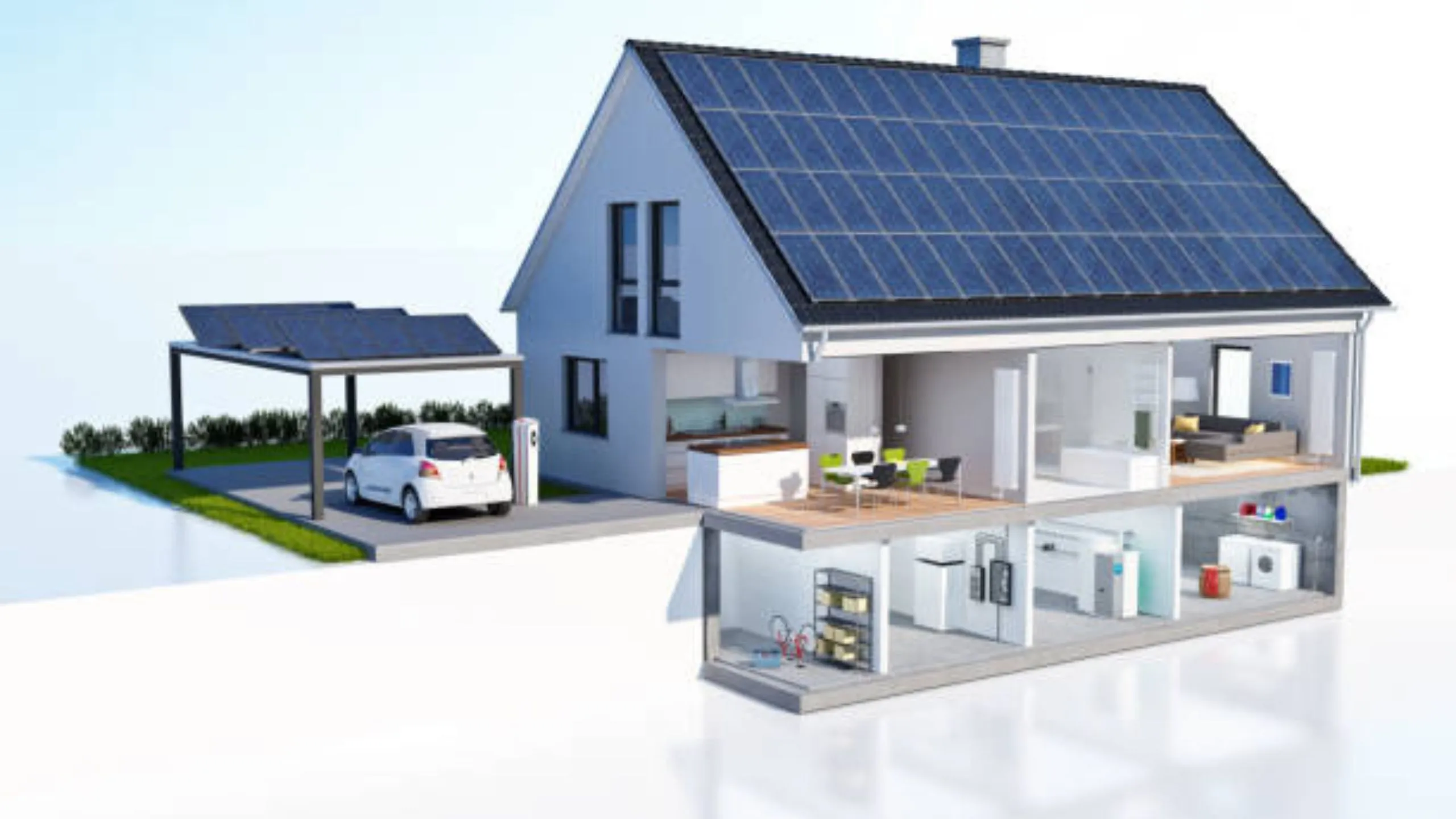Which Type Of Solar Panel Is Best For Home Use Solar panels are becoming a popular option for homeowners looking for affordable and sustainable energy solutions. But it can be difficult to decide which kind of solars panel is ideal for home use given the range of options available. This in-depth guide will examine the various kinds of Which Type Of Solar Panel Is Best For Home Use, their advantages, and disadvantages, assisting you in making an informed choice.
In This Post
Comprehending Solar Panels Which Type Of Solar Panel Is Best For Home Use
Solars panels: What Are They?
Photovoltaic (PV) panels, also known as solars panels, are gadgets that use sunlight to generate electricity. They are made up of numerous solar cells that collect solar energy and transform it into electrical power your house can use.
How Function Solar Panels?
The photovoltaic effect is the foundation upon which solars panels function. An electric current is produced in the solar cells when sunlight strikes them and excites the electrons. An inverter subsequently transforms this direct current (DC) electricity into alternating current (AC), enabling domestic use.
Solars Panel Types
Which Type Of Solar Panel Is Best For Home Use Monocrystalline, polycrystalline, and thin-film solar panels are the three main varieties that are frequently utilized in residential settings. Every variety has distinct qualities that enable them to be used in various contexts.
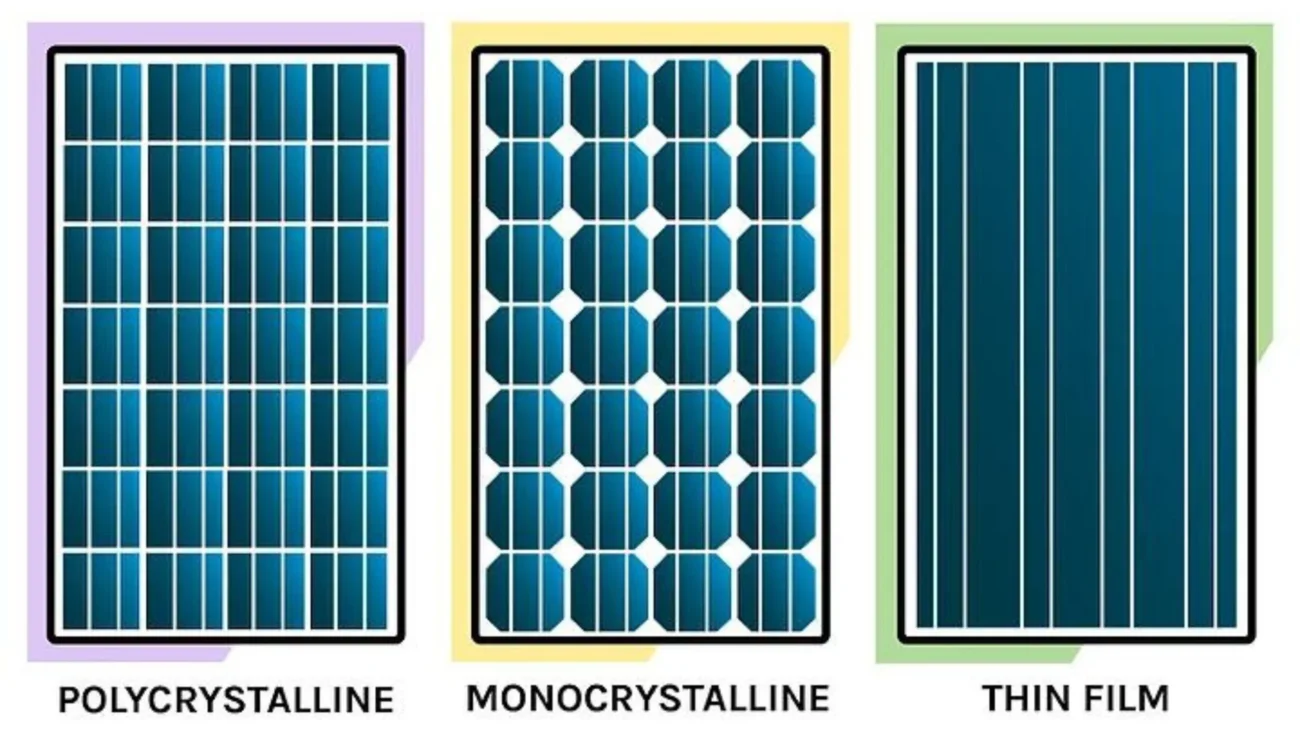
Solar Panels with Monocrystalline Structure
Solar panels that are monocrystalline are composed of a single continuous crystal structure. Their sleek black appearance and high efficiency are well known attributes.
Single-crystal solars panels’ advantages
Excellent Efficiency: The most efficient kind of solar panels are monocrystalline ones, which usually have efficiency rates between 15% and 20%.
Space Efficiency: Homes with a small roof area would benefit greatly from these panels because they produce more power per square foot.
Lifespan: Usually covered by a 25-year warranty, but with proper care, they can last even longer.
Single-crystal solars panels’ disadvantages
Price: These solar panels are typically the priciest variety.
Performance reduction: If a portion of the panel is shaded, performance can be considerably reduced.
Solars Panels with Polycrystalline Structure
Melted silicon crystals are used to create polycrystalline solars panels reviews. They often have a blue tint, are less effective than monocrystalline panels, but they are also less expensive.
Polycrystalline Solars Panels’ Advantages
Cost-Effective: They are a good option for homeowners on a tight budget because they are less expensive than monocrystalline panels.
Provide a reasonable efficiency range of 13–16% with decent efficiency.
Easier Manufacturing Process: Making them is less labor-intensive and wasteful.
The disadvantages of polycrystalline solar energy
Reduced Efficiency: Need more room to generate the same quantity of energy as monocrystalline panels.
Heat Sensitivity: Elevated temperatures have the potential to impact performance.
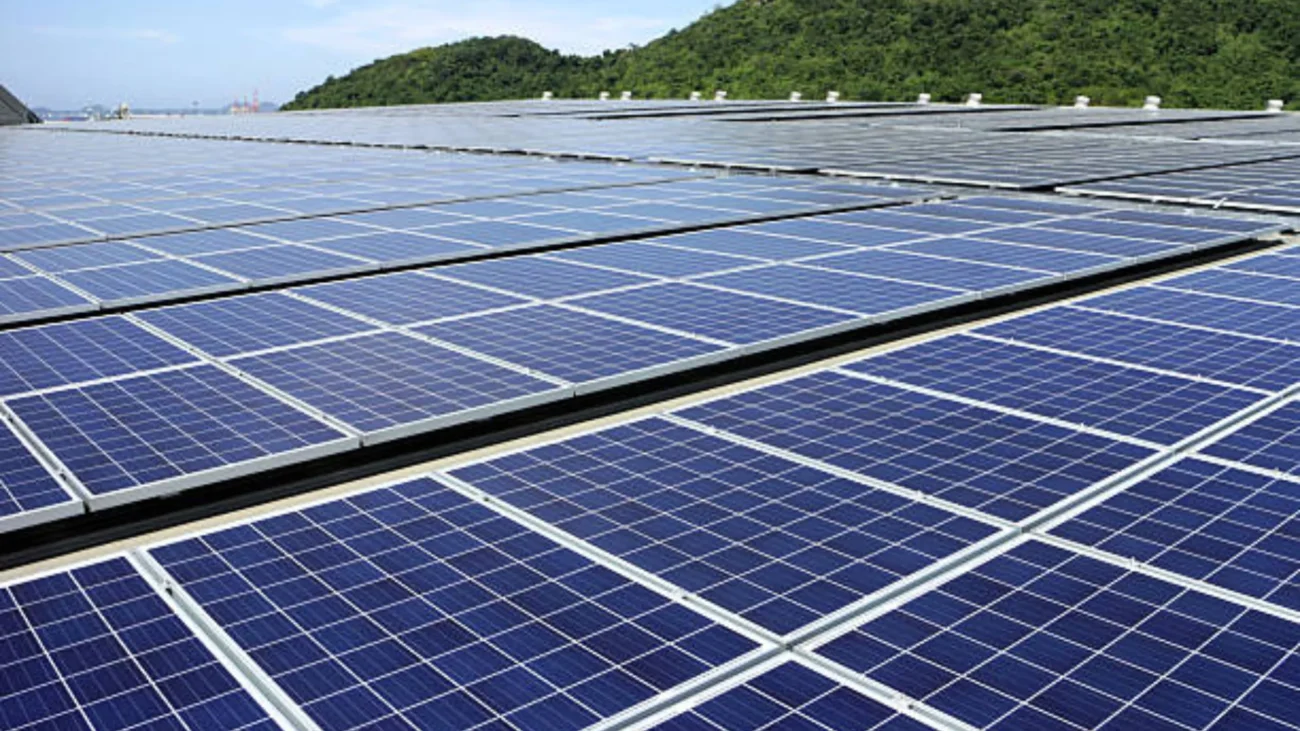
Film-Based Solar Panels
A thin layer of photovoltaic material is deposited onto a substrate to create thin-film solar panels. They are lightweight, flexible, and made of a variety of materials, such as amorphous silicon and cadmium telluride.
Thin-film solar panels’ advantages
Versatility: Adaptable to uneven surfaces and suitable for a wide range of applications.
Lightweight: Because they weigh less, they are easier to install.
Performance in Low Light: When it comes to low light, this system outperforms crystalline panels.
Thin-film solar panels’ drawbacks
Lower Efficiency: Typically have efficiency rates between 10 and 12 percent.
More space is needed in order to generate the same amount of energy as crystalline panels.
Shorter Lifespan: In comparison to other types, they often have shorter warranties and lifespans.
Evaluating Efficiency in Comparison
Which Type Of Solar Panel Is Best For Home Use When it comes to efficiency, thin-film panels come in last, polycrystalline panels come in second, and monocrystalline panels lead with their high efficiency rates. If maximizing energy output is your goal, efficiency is a critical component.
Expense Factors
Which Type Of Solar Panel Is Best For Home Use Budget is a major consideration when choosing solars panels. The most costly type of panels are monocrystalline ones, but they are very efficient. Polycrystalline solar panels offer good efficiency at a lower cost. The least expensive option is thin-film solars panels, but they take up more room and may need more frequent maintenance because of their shorter lifespan.
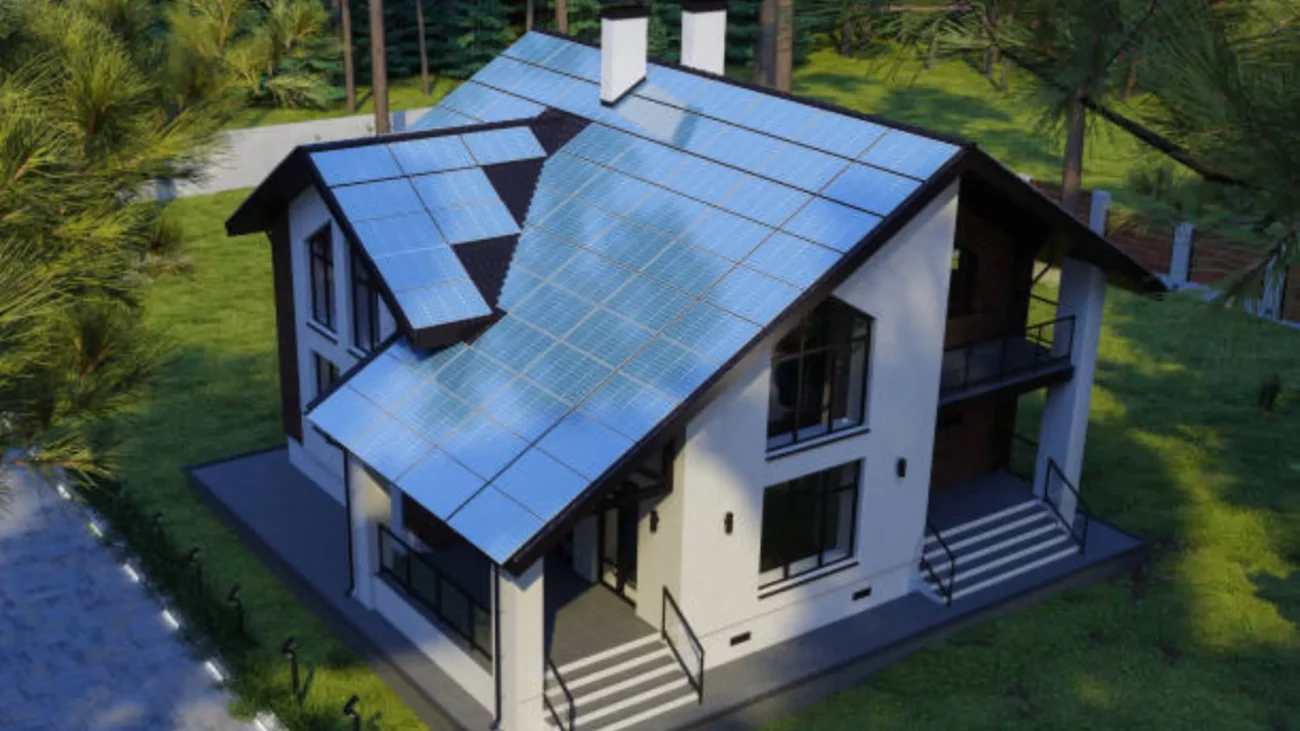
Sturdiness and Lifespan
Which Type Of Solar Panel Is Best For Home Use Lifespan and durability are essential to guaranteeing a positive return on your investment. Because of their long lifespan, monocrystalline panels frequently have the longest warranties (up to 25 years). Polycrystalline panels are known for their long lifespan, but thin-film panels usually come with shorter warranties.
Aesthetic Points to Remember
The curb appeal of your house may be impacted by the way your panels look. Since monocrystalline panels are usually sleek and black, they fit in better with the majority of rooftops. Blue-tinted polycrystalline panels could be easier to see. Because of their flexibility, thin-film panels can fit into the roof structure more naturally.
Area Requirements
Particularly for houses with smaller roofs, space is an important consideration. Compared to polycrystalline and thin-film panels, monocrystalline panels are the most efficient and require less space to produce the same amount of energy. Often, monocrystalline panels are the best option when space is at a premium.
Effects on the Environment
With their substantial environmental advantages, all panels help to lessen dependency on fossil fuels. But the environmental impact of their manufacturing processes varies. The production process for monocrystalline panels is more intensive than that for thin-film panels, which, depending on the materials used, may have a lower environmental impact. The two are balanced in polycrystalline panels.
What Kind of Solar Panel Is Ideal for Residential Use?
Which Type Of Solar Panel Is Best For Home Use Your unique requirements and available space will determine which kind of panel is ideal for your home. Monocrystalline panels are the best option if space and efficiency are your main concerns and money is not an issue. Polycrystalline solar panels are a good option if you have enough roof space and are searching for a reasonably priced solution. Thin-film panels could be the best option if you’re looking for flexibility and a lower initial cost.
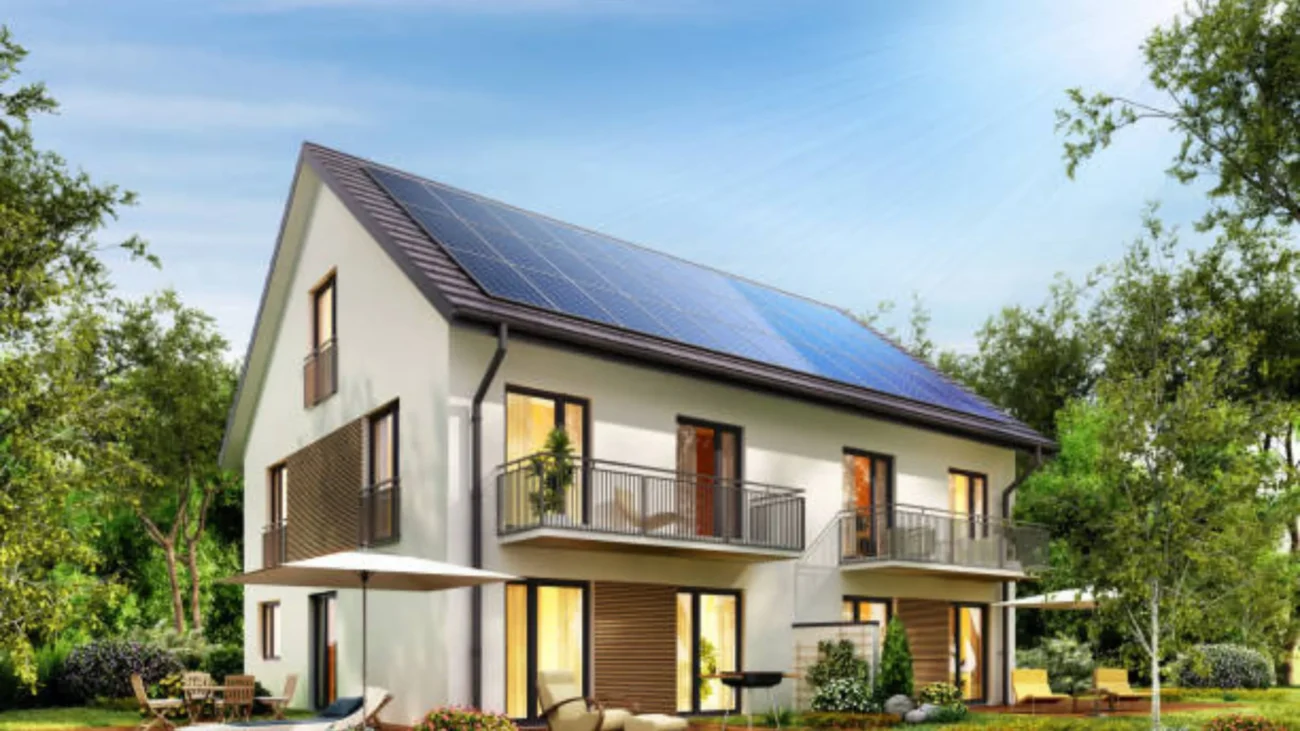
In summary
Which Type Of Solar Panel Is Best For Home Use When choosing panels for your house, it’s important to consider factors like cost, durability, efficiency, space, and design. The longest-lasting and most efficient solar panels are monocrystalline, but they also cost more. A cost-effective and reasonably efficient medium ground is offered by polycrystalline solar panels. Although less efficient, thin-film panels are less expensive up front and provide greater flexibility. Make the best decision for your house by carefully weighing your needs.
FAQs
How long do solars panels last?
Which Type Of Solar Panel Is Best For Home Use typically last 25-30 years, with many maintaining significant efficiency beyond their warranty period. Regular maintenance can extend their lifespan, ensuring they continue to produce electricity effectively for decades. Most panels come with a 25-year warranty, indicating their durability and long-term value.
Do solars panels work during cloudy weather?
Yes, solars panels work during cloudy weather but at reduced efficiency. They capture diffuse sunlight, allowing them to generate electricity even when it’s not sunny. While their performance is lower compared to bright, clear days, modern solar panels are designed to be effective in varying weather conditions.
Can I install solar panels myself?
While it’s possible to install solar panels yourself, professional installation is recommended for safety, efficiency, and compliance with local regulations. Professionals ensure proper setup, optimal performance, and adherence to all necessary codes, reducing the risk of errors and maximizing the system’s lifespan and effectiveness.
How much maintenance do solar panels require?
Solar panels require minimal maintenance. Typically, they need periodic cleaning to remove dust and debris and annual inspections to ensure optimal performance. Regular monitoring helps identify issues early, but overall, their upkeep is straightforward and low-cost.
What happens to solar panels at the end of their life?
At the end of their life, solar panels can be recycled. Components like glass, metal, and silicon are reclaimed and reused, reducing environmental impact. Many manufacturers offer recycling programs, ensuring panels are disposed of responsibly and materials are efficiently repurposed.
